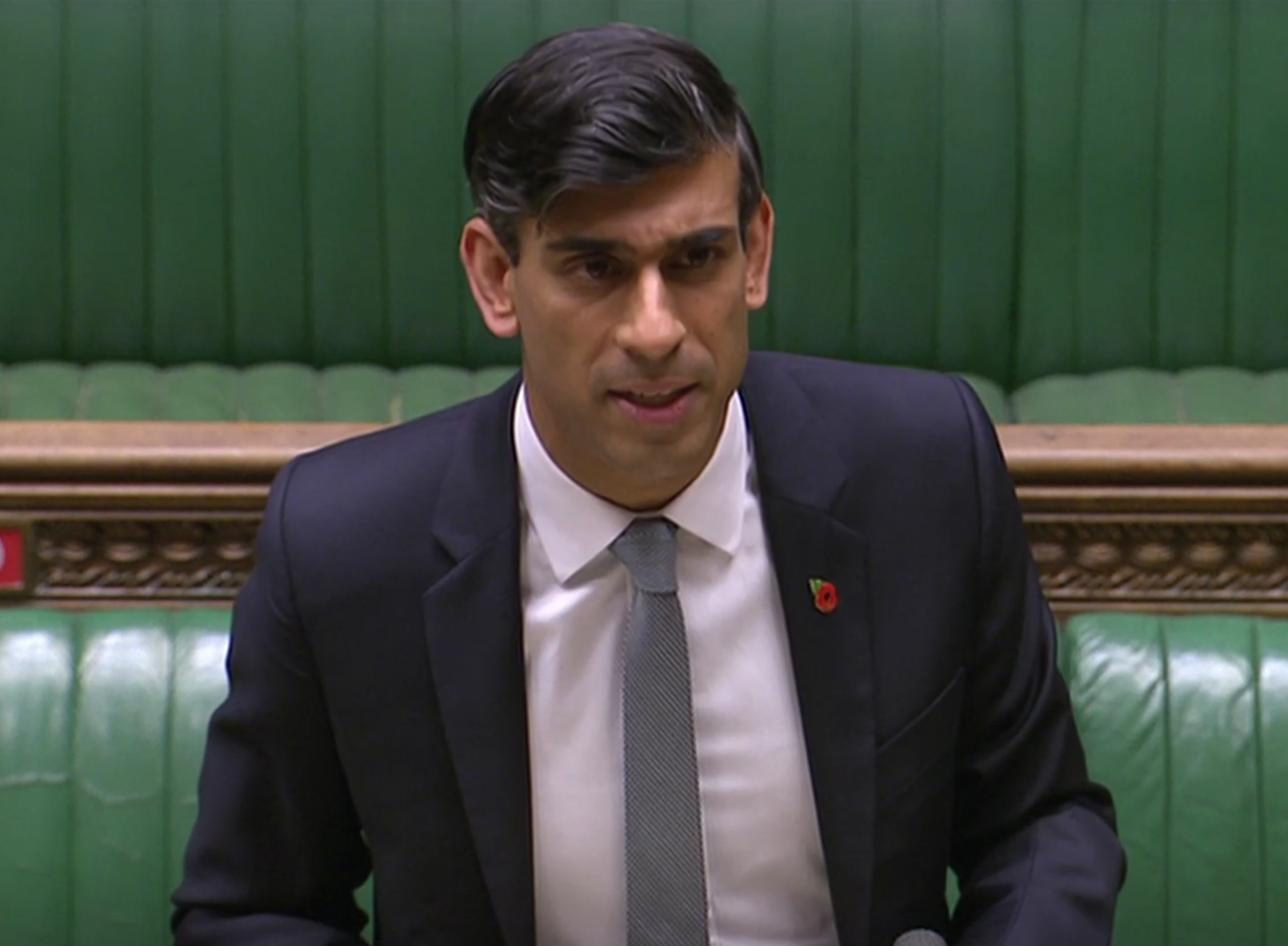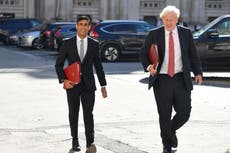The public sector pay squeeze means that austerity is back – but it’s different this time
No wonder, above all, that the chancellor shied away from setting out longer-term spending plans, writes John Rentoul


Austerity is back. Rishi Sunak, the chancellor, will be announcing the spending review next week – all that is left of an autumn Budget statement that has been shredded by one emergency fiscal event after another since the March Budget, which came on the day the country started to shut down because of coronavirus.
Next week’s statement has already been pre-empted by two big announcements. One was the prime minister’s speech on Thursday setting out a four-year spending plan for defence, increasing in real terms over the period. The other was the leaking of a public sector pay squeeze, a cap on wage increases set at or below inflation, on the front page of Friday’s Daily Mail: “Pay blow for 5m to fill Covid black hole.”
What will be left for the chancellor to do on Wednesday is to publish the Office for Budget Responsibility’s independent forecast for the economy with the predicted effect thereof on taxes and public spending, and to give departments (apart from the Ministry of Defence) their spending allocation for the year ahead.
The special treatment of defence spending is odd. It is not at the top of the British people’s priorities: opinion polls show health, education and just about everything else apart from aid is more important to most people. Despite Boris Johnson’s assertion in his speech that “the international situation is now more perilous and intensely competitive than at any time since the Cold War”, the British public is about as rearmament-minded as it was in 1933.
But defence is a prime ministerial prerogative, and the opposition, “under new management”, is in no position to oppose – indeed Keir Starmer welcomed the increased spending. Sunak was in no position to oppose, either – despite being immensely more powerful than was supposed when he was appointed as “No 10’s puppet” to replace the semi-autonomous Sajid Javid.
In fact, the increase in defence spending is not that great. The four-year plan takes it to 2.2 per cent of national income, just above the Nato target of 2 per cent, which has itself shrunk as the economy has shrunk.
But it will be better than some other departments will get – and better than defence got during the retrenchment of the coalition government.
For most departments, we are back to the hard choices facing David Cameron, Nick Clegg and George Osborne. Health, which was ringfenced last time, and then promised substantial spending increases over the medium term by Theresa May, is in a special category, called “whatever it takes”. The vaccination programme, now imminent, will be the latest item to appear under the heading in the public accounts that most alarms the Treasury: “No limit.”
But the rest of public spending faces similar trade-offs to those faced a decade ago. Schools spending will be protected, as will spending on the police. Capital spending on infrastructure cannot be cut without undermining the prime minister’s “build, build, build” rhetoric. There isn’t much left to cut. Local government spending, an easy target in 2010, is barren ground now. No wonder the aid budget is being softened up. No wonder Sunak is increasingly drawn to money-raising gimmicks, such as road pricing, and previously out-of-bounds areas, such as capital gains tax on houses.
And no wonder, above all, that the chancellor shied away from setting out longer-term spending plans – except for defence, on which the prime minister insisted. I suspect Sunak will try to avoid making deep cuts, but by setting spending for only one year ahead he can try to persuade the markets that he will get round to starting to balance the books the year after that.
You wouldn’t have thought the buyers and sellers of government debt would believe that, because they know that governments don’t want to cut spending and raise taxes in the second half of a parliament. But strangely, the fears that the government wouldn’t be able to borrow more – which dominated so much of the thinking of the early coalition period – seem to have evaporated.
As long as Sunak can put off the day of fiscal reckoning, this period of austerity will not be like the last, just as it in turn was not very like, for most people, the food and fuel rationing of the postwar years.
Join our commenting forum
Join thought-provoking conversations, follow other Independent readers and see their replies
Comments



Bookmark popover
Removed from bookmarks